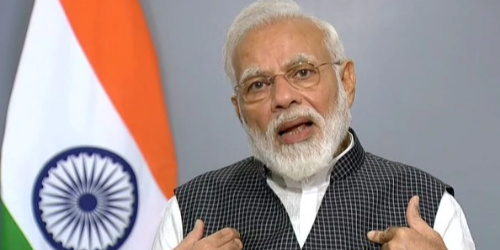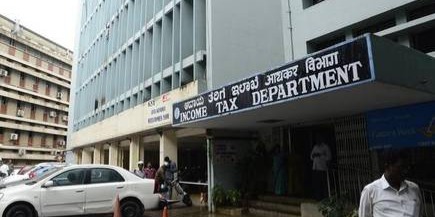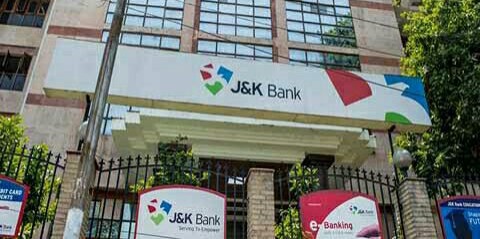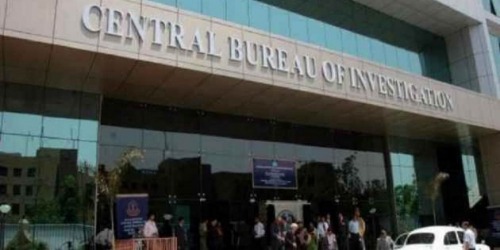3 years of demonetisation: 66% say PM Modi's note ban negatively impacted economy

Three years after Prime Minister Narendra Modi announced demonetisation, 66% people in an online survey believe it had a negative impact on the economy and labour employment. Whereas, only 28% of respondents said the decision did not have any adverse effect in a survey carried out by LocalCircles, a citizen engagement platform.
Meanwhile, around 33% of the people who participated in the survey blamed demonetisation for causing a downturn in the economy.
According to a lot of economy watchers, the note ban affected the unorganised sector the hardest resulting in a lot of job losses. The decision to invalidate 86% of the currency in the economy also began a spiral effect where consumption dropped owing to income loss, especially in villages.
Nearly a third of the respondents (32%) in the latest survey concurred with this view holding demonetisation responsible for many workers in the unorganised sector losing their incomes.
Whilst, among those who polled on the positive effects of demonetisation, 42% said that the note ban broadened the tax net encompassing a large number of tax dodgers.
The survey also revealed that the use of cash (in businesses and individual transactions) that had fallen after the note ban was announced has increased in the past two years.
PM Modi on November 8, 2016, had announced a ban on high-value currency notes of Rs 500 and Rs 1000 with the objective to fight black money, corruption and terror funding.
One of the key poll promises of Narendra Modi-led BJP in the 2014 Lok Sabha elections was bringing back the black money.
- 0
- Leave a comment
Auto slowdown: Suzuki sceptical about growth in India after slump in quarterly profits

Suzuki Motor Corp said it was no longer gung-ho about India's auto market, the world's fourth-largest, where it has seen relentless growth in the past seven years. And the parent of the country's biggest car maker is not alone.
The Japanese automaker issued the warning after it reported a slump in quarterly profit this week on tumbling sales at its Indian unit, Maruti Suzuki, which accounts for half the number of cars sold in India.
"We no longer think that growth in India will be an uninterrupted move upwards," Suzuki President Toshihiro Suzuki cautioned. Maruti's sales, which were growing till January, has slipped every month over February-September 2019.
India's auto sector has gone into a tailspin this year as tight liquidity at shadow banks, high taxes and a weak rural economy have sapped consumers' buying power. Global players like Ford, Volkswagen and Fiat are already re-evaluating their strategy as they struggle to make inroads in a market dominated by small cars.
"Car makers are getting very cautious regarding their future investments in India. Most of them are either deferring or just scrapping their India new model plans," said Puneet Gupta, an autos sector expert at IHS Markit.
Auto executives and analysts point out that some car makers are focussing on their strengths in terms of products instead of chasing volumes with small cars. Some others are taking drastic steps to reduce their exposure.
Ford has agreed to sell a majority stake in its India arm to Mahindra & Mahindra, ending its independent operations in the country after two decades and highlighting the challenges automakers face in growing profitably in Asia's third-largest economy.
DIALLING BACK
A cocktail of higher taxes under a new goods and services tax regime, flip-flop over electric-vehicle policy, and a boom of ride-sharing firms such as Uber and Ola have all plagued global automakers in India. Not having the right cars and smaller sales network have also hurt, some executives say. "When you have policy instability it becomes very hard to convince headquarters to invest more in the country," an executive at a western automaker said.
India is largely a small-car market and that is not a strength for most global automakers, who sell more SUVs and luxury cars elsewhere such as in China and the United States - the world's top two car markets, the executive added.
Western automakers had to design products specifically for India which is an expensive exercise, said V.G. Ramakrishnan, managing partner at consultancy Avanteum Advisors. "Many chose a mass-market strategy instead of a niche one," and are dialling back to focus on specific segments, he said.
Volkswagen has put its sister company Skoda in charge of India strategy and will focus on SUVs. Fiat too has put SUV-maker Jeep in charge of driving sales in the country.
Demand for SUVs in India is growing faster than some small car segments, prompting even the likes of Maruti that dominates the small-car space to look at launching SUVs and crossovers.
Honda is re-evaluating its India plans and may convert one of its two plants into a research centre, local media reported. Toyota and Suzuki have formed an alliance to share supply chain costs and develop new vehicle technologies together. "Automakers want to exploit their existing resources, minimize their costs and maximize their returns," Gupta said.
Indirect tax authorities to use new system for search, summons, other communication

The Central Board of Indirect Taxes and Customs (CBIC) has said its unique DIN system would come into force in the indirect tax administration from November 8. "The DIN would be used for search authorisation, summons, arrest memo, inspection notices and letters issued in the course of any enquiry. From now onwards, any communication from GST or Custom or Central Excise Department without a computer-generated DIN would be treated as invalid," said Revenue Secretary Ajay Bhushan Pandey.
The move will help bring transparency and accountability through use of information technology, a government statement said. "No communication would be issued without DIN except, only if it is in the specified exceptional circumstances," Pandey added. CBIC had implemented the DIN (Documentation Identification Number) system in direct tax administration in August.
CBIC Chairman Pranab K Das said the DIN system would create a digital directory for maintaining a proper audit trail of such communications. "Now all such specified communications with DIN would be verifiable on the online portal cbicddm.gov.in and any communication which is not in conformity with the prescribed guidelines as per the DIN related Circulars dated 05.11.2019 shall be treated as invalid," he said.
The CBDT in August had made DIN mandatory for all communications made by the Tax Department to assessees. As per DIN rules for the direct tax administrations, no communication can be issued by any income-tax authority to the assessee unless the DIN is "duly quoted" in the body of such communication.
J&K Bank continues to register growth despite recent events: Financial Commissioner

Jammu and Kashmir Bank is firmly moving on a path towards growth despite some of the recent events, Financial Commissioner, Finance, Arun Kumar Mehta said Tuesday.
The bank has shown profitability for the 8th straight quarter and posted a net profit of Rs 465.00 crore in the last fiscal, bank officials said.
The operational performance of the bank with regard to all the banking parameters has been satisfactory with the figures of advances and deposits during the five months of the current fiscal showing an increase of Rs 900.00 crore and Rs 2,030 crore, respectively from those over the corresponding period during the last fiscal, Mehta said.
This was revealed in a meeting held on Wednesday by the Financial Commissioner, Finance with the J&K bank officials.
While informing that the aggregate credit and deposits have grown substantially year on year (YoY) basis, CMD J&K Bank, RK Chibber, indicated that the bank has shown YoY credit growth of 16 per cent, which is indicative of a robust growth momentum.
Sharing the details of the risk management framework and NPA provisioning put in place by the bank, Chibber stated that the bank's internal controls and processes have been aligned with the industry's best practices and RBI's directives and that there is adequate provisioning for NPAs.
While informing that the bank is operating with a better than industry average net interest margin of 3.84 per cent, Chibber revealed that the bank has shown profitability for the 8th straight quarter and posted a net profit of Rs 465.00 crore in the last fiscal.
Assuring the CMD of the bank of the government's full support for its growth initiatives, he advised that the bank should improve the bank-customer interface to make dealing with the bank healthy experience for its vast customer base.
Chibber further stressed upon the CMD Bank to evolve a communication strategy across multiple media and marketing platforms to dispel the misinformation about the bank.
Financial Commissioner, Finance assured that the Government of J&K, holding a majority stake of 59 per cent in the bank, and J&K Bank will continue to work together to fulfil the aspirations of 12 million account holders of the bank who have reposed their trust in the bank.
CBI raids 169 locations over bank fraud cases worth Rs 7,000 crore

The Central Bureau of Investigation (CBI) carried out searches at 169 locations across the country on Tuesday in connection with various bank fraud cases. The raids were carried out in connection with 35 bank fraud cases amounting to Rs 7,000 crore.
The locations raided were across Andhra Pradesh, Chandigarh, Delhi, Gujarat, Haryana, Karnataka, Kerala, MP, Maharashtra, Punjab, Tamil Nadu, Telengana, UP, Uttarakhand, and Dadra & Nager Haveli.
A CBI official stated that the raids were carried out simultaneously on Tuesday morning. The name of the banks that were targeted in the nationwide raids have not been revealed by the agency. Similar searches in bank fraud cases were carried out in the last few months.
In the recent PMC Bank case, the lender had created more than 21,000 fictitious accounts to cover up Rs 4,300 crore of loans to the almost-bankrupt HDIL. HDIL promoters, Rakesh and Sarang Wadhawan, PMC Bank Managing Director Joy Thomas, Chairman Waryam Singh and Director SS Arora were arrested by the Economic Offences Wing of the Mumbai Police.


